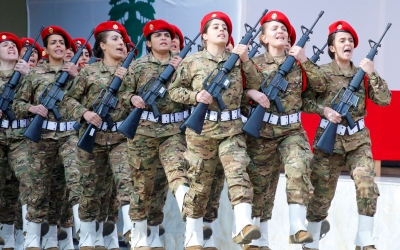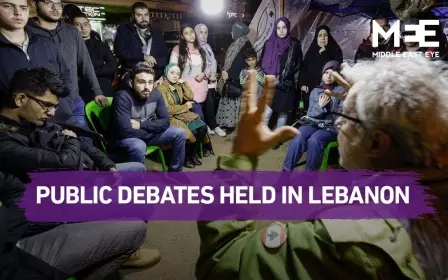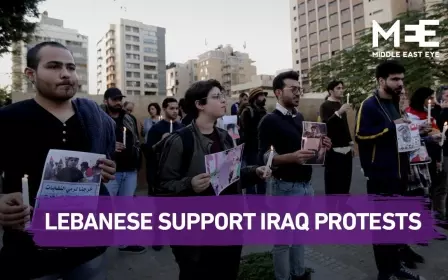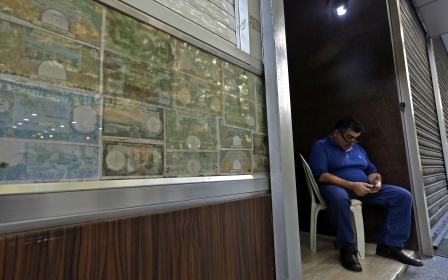Washington still committed to supporting Lebanese army, US official says
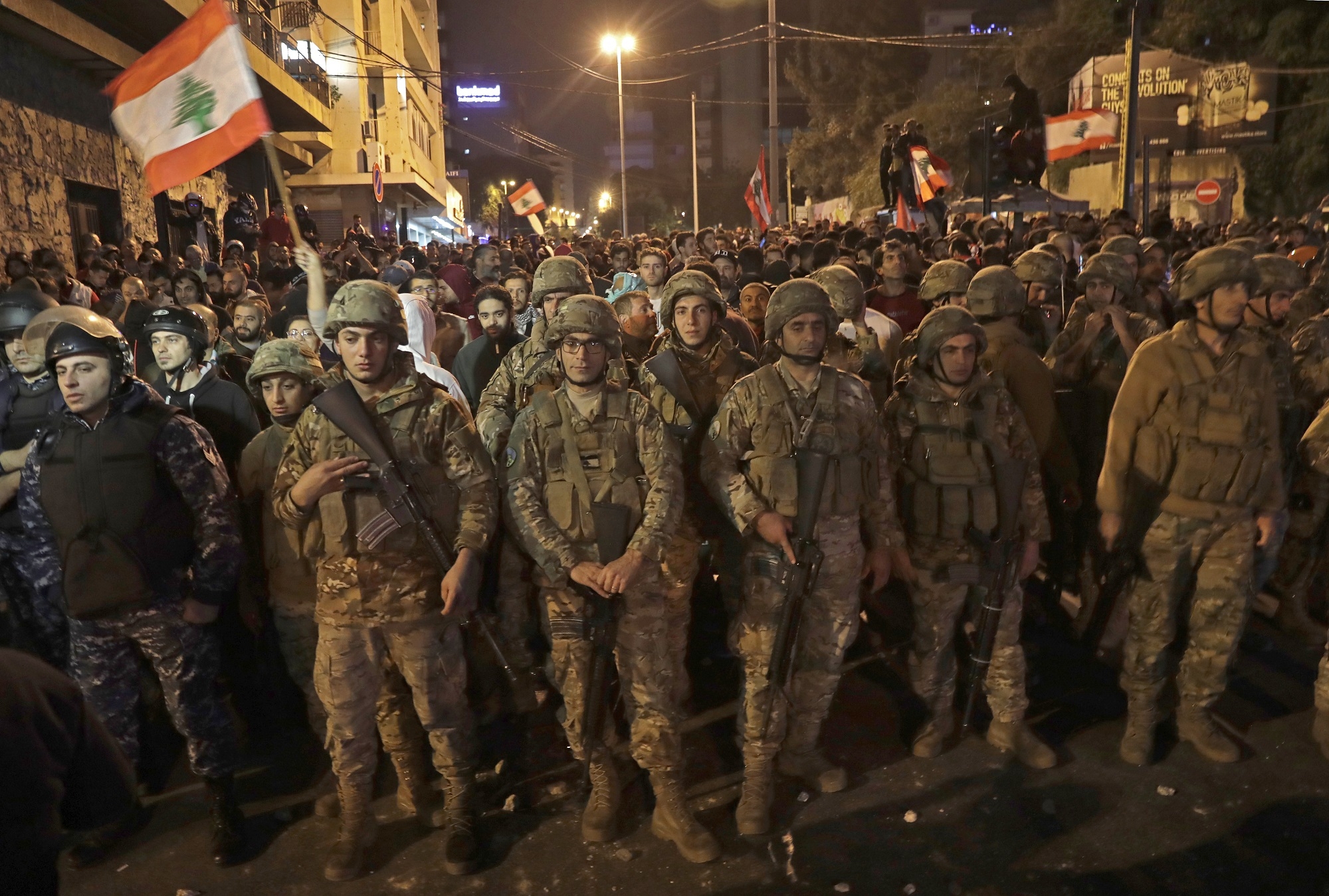
A hold on US assistance to the Lebanese Armed Forces (LAF) was not related to the ongoing protests in Lebanon, a top State Department official said, stressing that the administration's policy of supporting the country's military has not changed.
Addressing senators on a subcommittee on Near East, South Asia, Central Asia, and Counterterrorism on Wednesday, US diplomat Joey Hood said the withholding of aid that had been approved by Congress was because of bureaucratic processes.
"I can't get into the internal deliberations. It's true that bureaucratic processes often work more slowly than we'd like them to. I'm daily frustrated with that myself," Hood told lawmakers.
We believe strongly that strengthening the capacity of the LAF is critical to securing Lebanon's borders, defending its sovereignty and preserving its stability
- Joey Hood, US official
"But what I can say is that no delivery of material, no assistance was delayed or prevented from going to the LAF because of these internal deliberations."
New MEE newsletter: Jerusalem Dispatch
Sign up to get the latest insights and analysis on Israel-Palestine, alongside Turkey Unpacked and other MEE newsletters
The aid was released earlier this week after several US legislators sounded the alarm about the delay.
Withholding the assistance had come at a critical time for Lebanon, which is experiencing widespread protests against the country's ruling elites and a looming economic collapse because of a worsening currency crisis.
Questions on White House involvement
On Wednesday, Hood, who serves as deputy assistant secretary of state for Near Eastern affairs, said Washington's policy of backing the Lebanese army had not changed.
"We believe strongly that strengthening the capacity of the LAF is critical to securing Lebanon's borders, defending its sovereignty and preserving its stability," he said.
Still, Hood evaded questions from senators on why the aid was delayed.
"When I was in Lebanon a week ago, no American official could give me a reason as to why the aid was held up and what the LAF needed to do to get it unstuck," said Senator Chris Murphy, a Democrat who had previously rebuked the administration for delaying the aid.
President Donald Trump is facing impeachment over similarly suspending aid to Ukraine to pressure the Eastern European country to investigate the son of his political rival, Democratic presidential candidate and former Vice President Joe Biden.
On Wednesday, Democratic senators grilled Hood about the extent of the White House's involvement in the temporary hold on the assistance to Lebanon.
"I want to know: Was there a decision made in the White House to withhold these funds?" Senator Tim Kaine asked.
Hood responded by emphasising that the delay was the product of a bureaucratic internal debate about the aid.
When pressed on whether the decisions to withhold, then release, the funds came from the White House, State Department or Pentagon, Hood said: "I can't get into the internal deliberations of how we're making the sausage on this or any other particular decision."
'Money well-spent'
Earlier in the hearing, Murphy lambasted the administration for viewing the mass protests in Lebanon and Iraq as parts of Washington's confrontation with Tehran.
"Because of this obsession - seeing everything through an Iran prism - the administration is missing key opportunities to advance US interests in other countries… We can't let our focus on Iran destabilise other parts of the region," he said.
Still, Republican Senator Ted Cruz said he opposed the assistance to the Lebanese army because it is failing to push the Lebanese government to disarm Iran's ally - Hezbollah.
Earlier this year, Cruz introduced a bill to slash assistance to the Lebanese army unless the president certified that Lebanese officials were "taking necessary steps to end Hezbollah and Iran's influence over the LAF".
On Wednesday, Hood explained to Cruz that the Lebanese people, who are still recovering from a 15-year civil war that ended in 1990, are wary of the prospect of a military confrontation between Hezbollah and LAF.
Iran-alligned Hezbollah holds seats in parliament, is represented in the cabinet and has a political partnership with President Michel Aoun.
"We view the Lebanese Armed Forces and our investment in it as a succeeding investment. We're not there yet, but it is money that is so far well-spent," Hood said.
Middle East Eye delivers independent and unrivalled coverage and analysis of the Middle East, North Africa and beyond. To learn more about republishing this content and the associated fees, please fill out this form. More about MEE can be found here.


